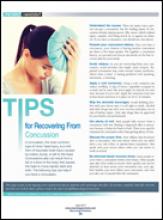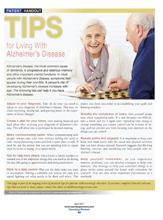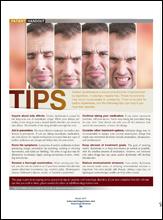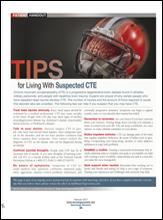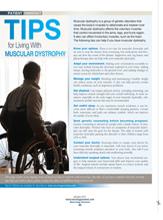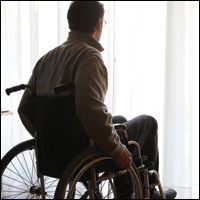User login
Tips for Recovering From Concussion
Click here to download the PDF.
Click here to download the PDF.
Click here to download the PDF.
Tips for Living With ADHD
Click here to download the PDF.
Click here to download the PDF.
Click here to download the PDF.
Tips for Living With Alzheimer's Disease
Click here to download the PDF.
Click here to download the PDF.
Click here to download the PDF.
Tips for Living With Tardive Dyskinesia
Click here to download the PDF.
Click here to download the PDF.
Click here to download the PDF.
Tips for Living With Suspected CTE
Click here to download the PDF.
Click here to download the PDF.
Click here to download the PDF.
Tips for Living With Muscular Dystrophy
Click here to download the PDF.
Click here to download the PDF.
Click here to download the PDF.
Pediatric OSA improved with oral montelukast
The majority of children with obstructive sleep apnea (OSA) who took oral montelukast showed reductions in their apnea-hypopnea index (AHI) scores, according to the results of a randomized, double-blind placebo-controlled study. Typically, OSA in children is treated with adenotonsillectomy, explained Leila Kheirandish-Gozal, MD, director of clinical sleep research at the University of Chicago, and her colleagues. However, in this study, children were given either montelukast or placebo for 16 weeks and then participated in an overnight polysomnographic study. Seventy-one percent of the patients who took montelukast had fewer AHI events per hour of total sleep time at the end of the study. To learn more, see Family Practice News: http://www.mdedge.com/familypracticenews/article/116479/pulmonology/pediatric-osa-improved-oral-montelukast.
The majority of children with obstructive sleep apnea (OSA) who took oral montelukast showed reductions in their apnea-hypopnea index (AHI) scores, according to the results of a randomized, double-blind placebo-controlled study. Typically, OSA in children is treated with adenotonsillectomy, explained Leila Kheirandish-Gozal, MD, director of clinical sleep research at the University of Chicago, and her colleagues. However, in this study, children were given either montelukast or placebo for 16 weeks and then participated in an overnight polysomnographic study. Seventy-one percent of the patients who took montelukast had fewer AHI events per hour of total sleep time at the end of the study. To learn more, see Family Practice News: http://www.mdedge.com/familypracticenews/article/116479/pulmonology/pediatric-osa-improved-oral-montelukast.
The majority of children with obstructive sleep apnea (OSA) who took oral montelukast showed reductions in their apnea-hypopnea index (AHI) scores, according to the results of a randomized, double-blind placebo-controlled study. Typically, OSA in children is treated with adenotonsillectomy, explained Leila Kheirandish-Gozal, MD, director of clinical sleep research at the University of Chicago, and her colleagues. However, in this study, children were given either montelukast or placebo for 16 weeks and then participated in an overnight polysomnographic study. Seventy-one percent of the patients who took montelukast had fewer AHI events per hour of total sleep time at the end of the study. To learn more, see Family Practice News: http://www.mdedge.com/familypracticenews/article/116479/pulmonology/pediatric-osa-improved-oral-montelukast.
VIDEO: Don’t be surprised by weight gain in men after HCV cure
Researchers found that men, but not women, who had achieved sustained virologic response (SVR) after treatment for hepatitis C virus (HCV) had a small but significant weight gain, according to a single-center retrospective study. Liver fat also increased significantly in men after SVR was achieved, according to noninvasive assessments. The researchers believe that social, and not biochemical or mechanistic, reasons may be behind the weight gain and increased hepatic steatosis. A video interview with one of the researchers can be seen at Family Practice News: http://www.mdedge.com/familypracticenews/article/118172/obesity/video-dont-be-surprised-weight-gain-men-after-hcv-cure.
Researchers found that men, but not women, who had achieved sustained virologic response (SVR) after treatment for hepatitis C virus (HCV) had a small but significant weight gain, according to a single-center retrospective study. Liver fat also increased significantly in men after SVR was achieved, according to noninvasive assessments. The researchers believe that social, and not biochemical or mechanistic, reasons may be behind the weight gain and increased hepatic steatosis. A video interview with one of the researchers can be seen at Family Practice News: http://www.mdedge.com/familypracticenews/article/118172/obesity/video-dont-be-surprised-weight-gain-men-after-hcv-cure.
Researchers found that men, but not women, who had achieved sustained virologic response (SVR) after treatment for hepatitis C virus (HCV) had a small but significant weight gain, according to a single-center retrospective study. Liver fat also increased significantly in men after SVR was achieved, according to noninvasive assessments. The researchers believe that social, and not biochemical or mechanistic, reasons may be behind the weight gain and increased hepatic steatosis. A video interview with one of the researchers can be seen at Family Practice News: http://www.mdedge.com/familypracticenews/article/118172/obesity/video-dont-be-surprised-weight-gain-men-after-hcv-cure.
VIDEO: Bariatric surgery may protect against heart failure
Results of a new 40,000-patient Swedish observational study provide the strongest evidence to date suggesting a causal relationship between bariatric surgery and reduced risk of heart failure, according to Johan Sundström, MD. The study, which included patients drawn from 2 large Swedish national registries, demonstrated that bariatric surgery was associated with a 46% reduction in the incidence of heart failure during a median 4.1 years of follow-up, compared with an intensive lifestyle modification program for weight loss.
“A great way of studying causality is to take away the exposure and note what happens to the outcome. If there’s a causal link, then if you take away the risk factor—in this case, obesity—the disease should go away,” Dr. Sundström explained. Further details and a video interview are available at Cardiology News: http://www.mdedge.com/ecardiologynews/article/118204/heart-failure/video-bariatric-surgery-may-protect-against-heart?channel=224.
Results of a new 40,000-patient Swedish observational study provide the strongest evidence to date suggesting a causal relationship between bariatric surgery and reduced risk of heart failure, according to Johan Sundström, MD. The study, which included patients drawn from 2 large Swedish national registries, demonstrated that bariatric surgery was associated with a 46% reduction in the incidence of heart failure during a median 4.1 years of follow-up, compared with an intensive lifestyle modification program for weight loss.
“A great way of studying causality is to take away the exposure and note what happens to the outcome. If there’s a causal link, then if you take away the risk factor—in this case, obesity—the disease should go away,” Dr. Sundström explained. Further details and a video interview are available at Cardiology News: http://www.mdedge.com/ecardiologynews/article/118204/heart-failure/video-bariatric-surgery-may-protect-against-heart?channel=224.
Results of a new 40,000-patient Swedish observational study provide the strongest evidence to date suggesting a causal relationship between bariatric surgery and reduced risk of heart failure, according to Johan Sundström, MD. The study, which included patients drawn from 2 large Swedish national registries, demonstrated that bariatric surgery was associated with a 46% reduction in the incidence of heart failure during a median 4.1 years of follow-up, compared with an intensive lifestyle modification program for weight loss.
“A great way of studying causality is to take away the exposure and note what happens to the outcome. If there’s a causal link, then if you take away the risk factor—in this case, obesity—the disease should go away,” Dr. Sundström explained. Further details and a video interview are available at Cardiology News: http://www.mdedge.com/ecardiologynews/article/118204/heart-failure/video-bariatric-surgery-may-protect-against-heart?channel=224.
Interrupting oral anticoagulation in AF carries high thromboembolic cost
Temporary interruption of oral anticoagulation for stroke prevention in patients with atrial fibrillation occurs often and is associated with substantially increased risk of both cardioembolic events and all-cause mortality, according to a new prespecified secondary analysis of the ENGAGE-AF TIMI 48 trial.
The analysis showed that many of these treatment interruptions occur in response to nonserious adverse events such as minor bleeding, planned dental procedures, or simply because of patient wishes. The new ENGAGE-AF TIMI 48 findings may encourage physicians and patients to think twice before interrupting anticoagulant therapy for such reasons. More on the findings of this analysis can be found at Cardiology News: http://www.mdedge.com/ecardiologynews/article/116905/arrhythmias-ep/interrupting-oral-anticoagulation-af-carries-high.
Temporary interruption of oral anticoagulation for stroke prevention in patients with atrial fibrillation occurs often and is associated with substantially increased risk of both cardioembolic events and all-cause mortality, according to a new prespecified secondary analysis of the ENGAGE-AF TIMI 48 trial.
The analysis showed that many of these treatment interruptions occur in response to nonserious adverse events such as minor bleeding, planned dental procedures, or simply because of patient wishes. The new ENGAGE-AF TIMI 48 findings may encourage physicians and patients to think twice before interrupting anticoagulant therapy for such reasons. More on the findings of this analysis can be found at Cardiology News: http://www.mdedge.com/ecardiologynews/article/116905/arrhythmias-ep/interrupting-oral-anticoagulation-af-carries-high.
Temporary interruption of oral anticoagulation for stroke prevention in patients with atrial fibrillation occurs often and is associated with substantially increased risk of both cardioembolic events and all-cause mortality, according to a new prespecified secondary analysis of the ENGAGE-AF TIMI 48 trial.
The analysis showed that many of these treatment interruptions occur in response to nonserious adverse events such as minor bleeding, planned dental procedures, or simply because of patient wishes. The new ENGAGE-AF TIMI 48 findings may encourage physicians and patients to think twice before interrupting anticoagulant therapy for such reasons. More on the findings of this analysis can be found at Cardiology News: http://www.mdedge.com/ecardiologynews/article/116905/arrhythmias-ep/interrupting-oral-anticoagulation-af-carries-high.
